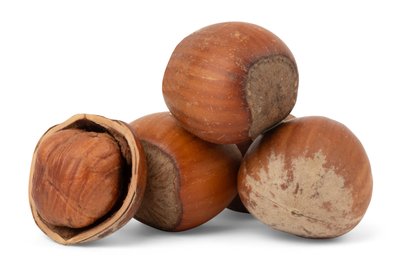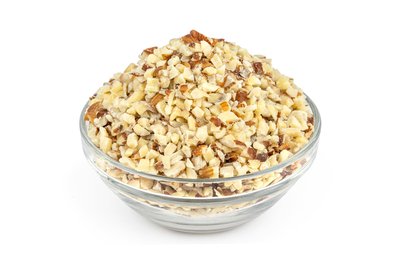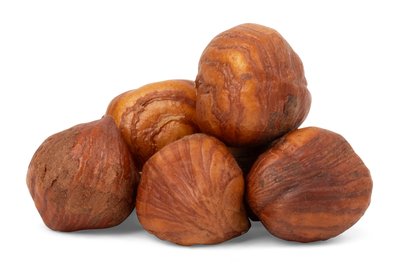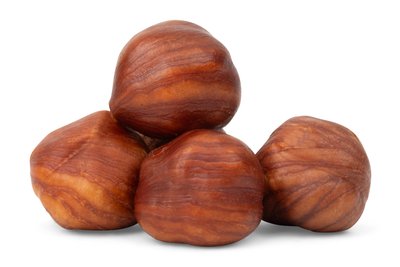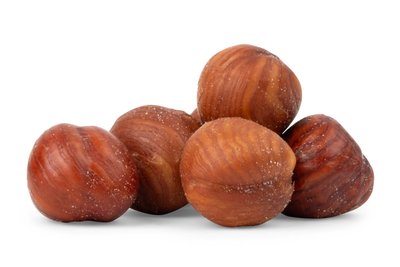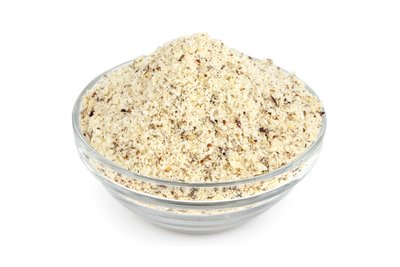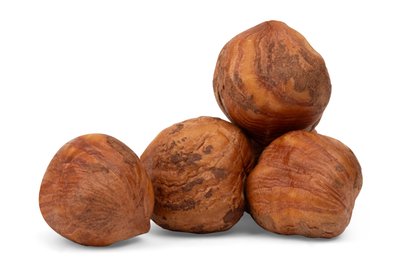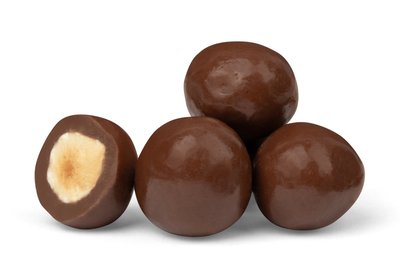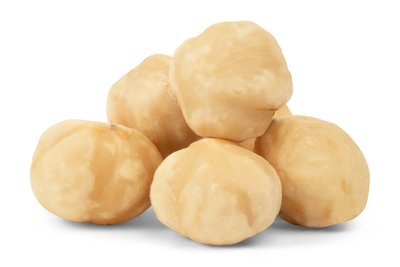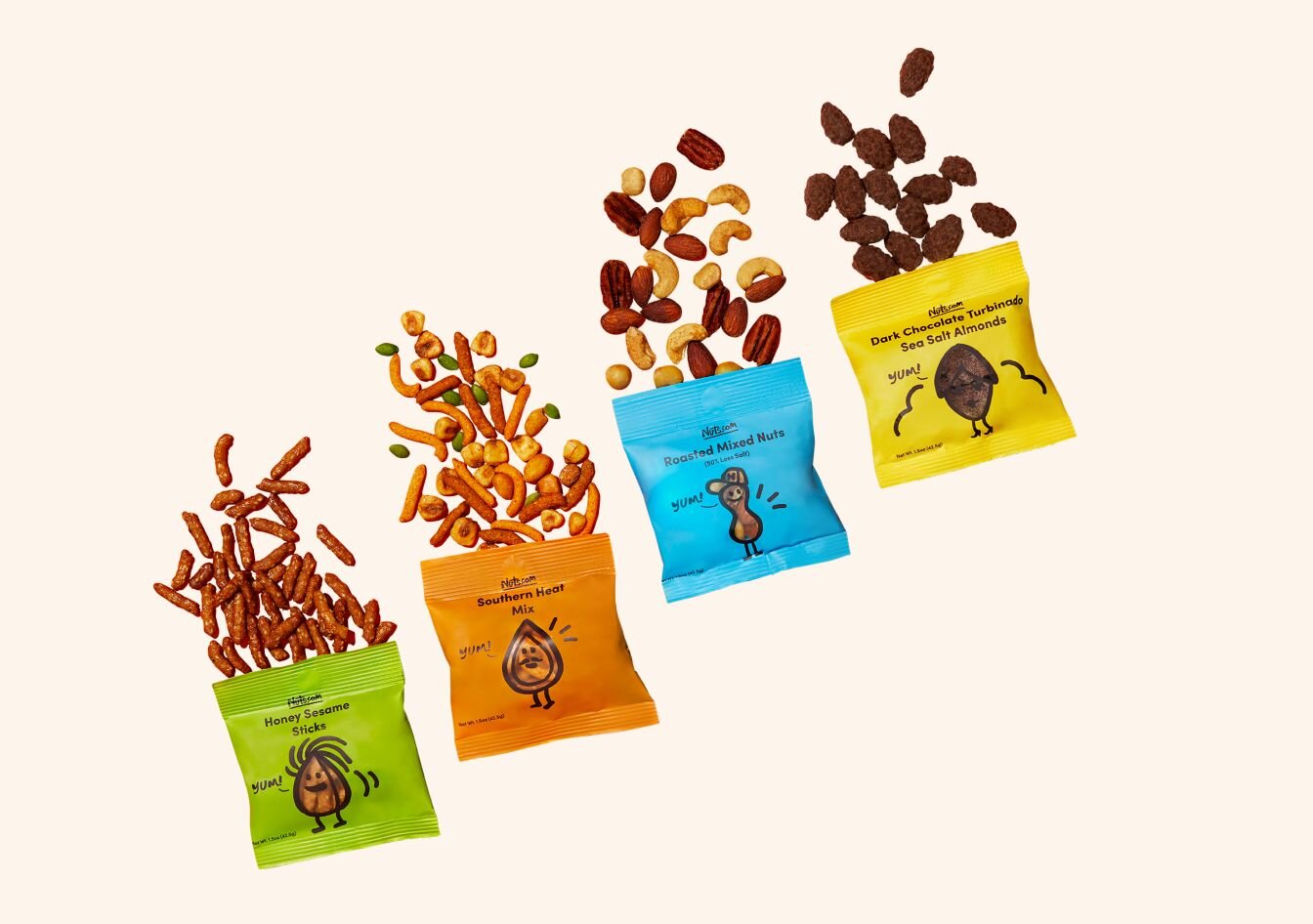Bulk Hazelnuts (Filberts)
Sort by:
About Hazelnuts
The hazelnut is the hard-shelled fruit of the hazelnut tree. Hazelnuts, also known as filberts from European folklore, are believed to have originated over 5000 years ago in prehistoric China. Currently, the world’s top three producers of hazelnuts are Turkey, Italy, and the United States. Nearly 100% of the U.S. crop for hazelnuts comes from the Willamette Valley of Oregon. Today, hazelnuts are prized for their many health benefits, as well as for a wealth of culinary applications around the world.
Hazelnuts Health Benefits
Heart Health
Most nuts contain a high amount of unsaturated fat, aka “good” fat. Filberts contain almost 80 percent monounsaturated fat and less than 4 percent saturated fat. Replacing saturated fat with monounsaturated fat is known to reduce total blood and LDL “bad” cholesterol levels, making hazelnuts a great heart-healthy snack option.
Super Antioxidant Strength
The antioxidant levels in hazelnuts are comparable to those of many superfoods. Hazelnuts have one of the highest ORAC (Oxygen Radical Absorbance Capacity) scores of any nut; ORAC is the most widely accepted method of measuring antioxidants, the compounds that fight damaging free radicals in the body. Further, filberts contained the highest proanthocyanidins (PACs) concentration of any tree nut. PACs have antioxidant capabilities that are 20 times more potent than Vitamin C and 50 times more than Vitamin E.
#1 Nut for Folate
Hazelnuts are the richest source of folate among tree nuts. Folate, also known as folic acid or vitamin B-12, is essential for many of our body’s metabolic processes. It aids the production of red blood cells, supports brain function and cardiovascular health, and reduces the risk of neural tube defects.
Even More Nutrients
The health benefits of hazelnuts don’t stop there. Like most nuts, filberts are a good source of protein, dietary fiber, iron, and potassium. They also contain over 20% of the Daily Value (DV) of copper and over 80% DV of manganese. Copper helps our bodies utilize iron and supports the development of bones and connective tissue. Manganese regulates blood sugar levels, aids calcium absorption, and supports bone health.
Taste and Uses
Hazelnuts have a delicate nutty flavor and mildly bitter skin, they are most commonly used to complement the tastes of confectionary goods, however they are also used in select savory dishes. One form of the nut you may be familiar with is the sweet spread, Nutella, which can be paired with any number of sweet and savory treats.
Hazelnuts for Sweets
Filberts pair exceptionally well with chocolate, a combination which makes Nutella, a chocolate-hazelnut spread, widely popular. Hazelnut paste is often made from roasted filberts and sugar, and is used in tortes and pastries to add a touch of elegance and sweetness, while hazelnut flour adds a nutty appeal to cakes, cookies, and baked goods.
Hazelnuts for Savory Dishes
Chopped hazelnuts can be used as a crust for fish or chicken. Hazelnut oil is renowned for its many health benefits, and can be used to dress up salads and marinades or bring a subtle nutty flavor to baking. As with cakes and cookies, hazelnuts can be added atop your favorite bread recipes for a nutritious crunch.
How are hazelnuts harvested?
Hazelnut trees thrive in cool, moist climates and require the chill to break dormancy. The trees are ready for harvest during mid-autumn when the nuts begin falling to the ground on their own; mechanical shakers are rarely used to remove nuts from the trees since they will not be ripe yet.
Instead, in commercial harvesting, various equipment is used to collect the filberts from the ground, separate them from excess leaves and empty husks, and haul them to processing facilities. The hazelnuts are dried and the remaining husks are removed manually or by machine. The nuts are then sorted by size, cleaned, and shelled or left unshelled for sale.
We also offer Wholesale Hazelnuts.


